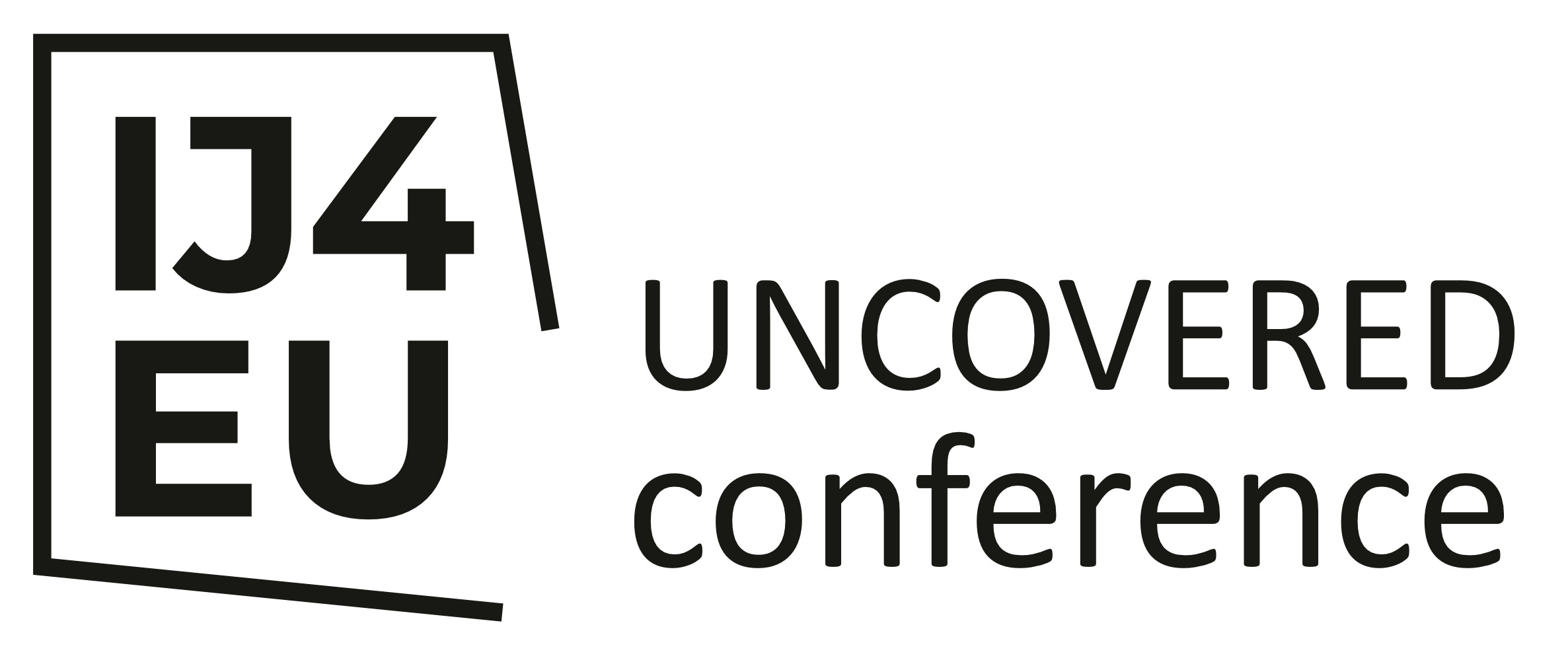Three investigations. Three powerful reminders of why cross-border journalism matters.
Journalists behind hard-hitting investigations into soaring European medicine prices, Israeli attacks on Palestinian reporters, and EU complicity in migrant expulsions in North Africa have won the 2025 IJ4EU Impact Awards.
Sharing equal honours, each of the three winning teams received €5,000 in prize money at the annual awards of the Investigative Journalism for Europe (IJ4EU) fund, which supports cross-border watchdog reporting.
In alphabetical order, the winning investigations were:
- Deadly Prices, by Investigate Europe and partners NDR, WDR, Süddeutsche Zeitung, Reporters United, RTP and Eesti Ekspress, which calculated the cost of critical drugs across nine EU countries, highlighting how pharmaceutical companies exploit opaque pricing and intellectual property rules.
- The Gaza Project, a consortium of 50 reporters from 13 newsrooms led by Forbidden Stories, which documented patterns of attacks on journalists in Gaza and the West Bank.
- Desert Dumps by Lighthouse Reports, Enass, Inkyfada, Der Spiegel, Le Monde, El País, IrpiMedia and Tagesschau, which detailed how EU funds, vehicles and intelligence underpin mass expulsions of migrants into desert areas.
The jury also gave an honourable mention to How an EU-funded security force helped Senegal crush democracy protests, by reporters working with Al Jazeera English and Fundación porCausa.
“Impact is not always a court ruling, policy change or political event,” Paul Caruana Galizia, a member of the independent jury that awarded the prizes, said, speaking of the Gaza Project.
“Sometimes it is clarity: meticulous reconstruction that forces a public reckoning and restores the human detail that blackout conditions try to erase. That is impact, and it is ongoing.”
Excellence in collaborative reporting
The prizes were presented on 26 September in Athens during the IJ4EU UNCOVERED Conference, hosted by the iMEdD International Journalism Forum.
The IJ4EU Impact Awards, now in their fifth year, honour excellence in collaborative reporting on public-interest stories that cross borders. The awards are open to all eligible teams, regardless of whether they have received IJ4EU funding. None of this year’s winning investigations were supported by IJ4EU grants.
The 2025 awards drew 36 nominations from 58 countries, with every EU member state represented. The jury selected the winners from a shortlist compiled by evaluators at Leipzig University.
This year’s jury was chaired by Gill Phillips, director of editorial legal services at The Guardian. Other members were Paul Caruana Galizia, an award-winning investigative journalist at the Financial Times; Mira Milosevic, executive director of the Global Forum for Media Development; Maribel Königer, director of journalism and media at ERSTE Foundation; and Kolja Weber, founder of FlokiNET.The IJ4EU Impact Award is managed by the European Centre for Press and Media Freedom in partnership with the other implementing partners of the IJ4EU fund: the International Press Institute, the European Journalism Centre and Arena for Journalism in Europe. IJ4EU is co-funded by the European Commission and philanthropic donors including Adessium Foundation and Fritt Ord Foundation.
Lives of millions
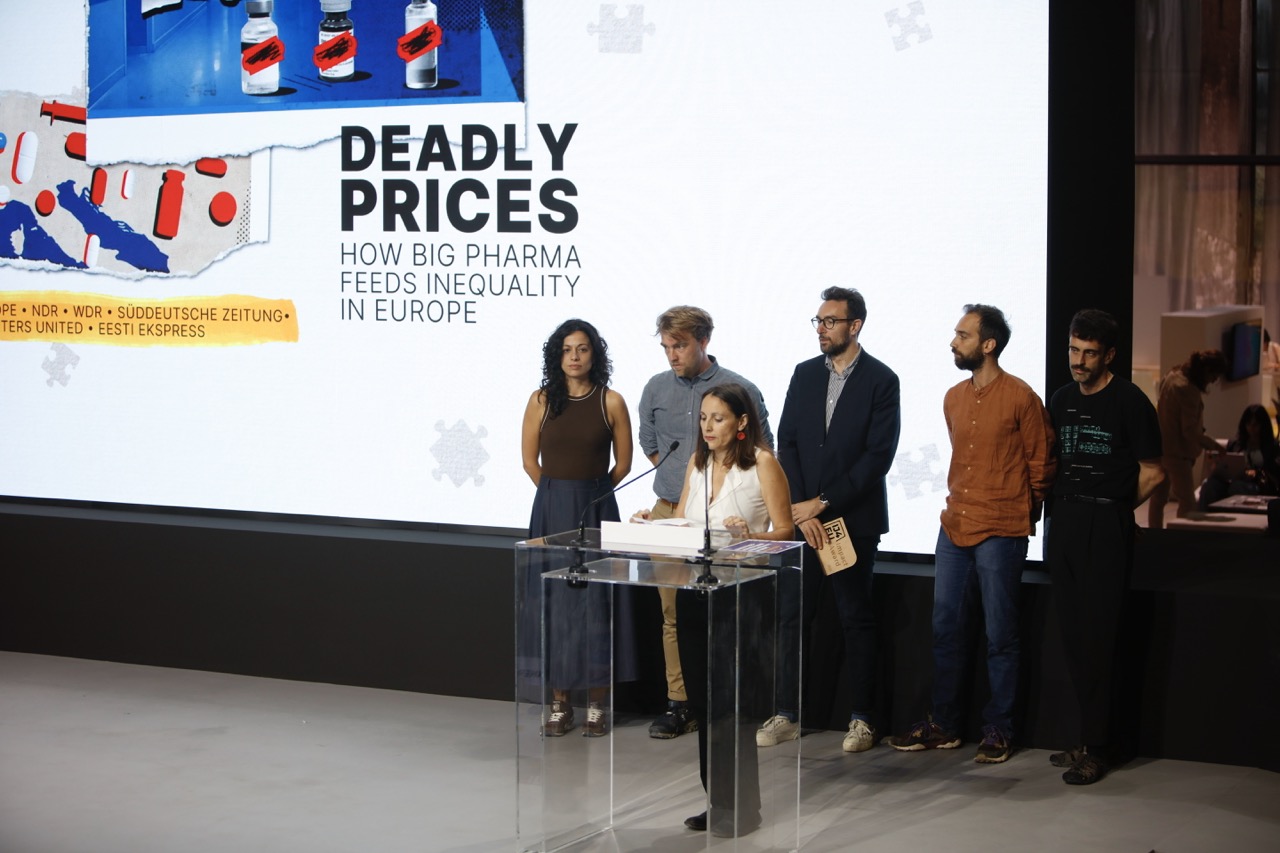
The jury commended the team behind Deadly Prices for exposing inequalities in Europe that affect the lives of millions of people.
Using corporate revenue reports, hospital billing data, leaked reimbursement contracts and interviews with insiders, the investigation sought an answer to a critical question: Why are life-saving medicines still out of reach for so many in Europe?
In an unprecedented investigation, the team calculated estimated prices for critical drugs in nine EU countries, exposing how pharmaceutical giants exploit opaque pricing systems, lobbying power and intellectual property rules to keep drug costs high across the continent.
“Deadly Prices is an influential investigation that revealed how pharmaceutical companies exploit Europe’s fragmented pricing system, leaving patients in smaller countries without access to life-saving treatments,” jury member Milosevic said.
‘Commitment to accountability’
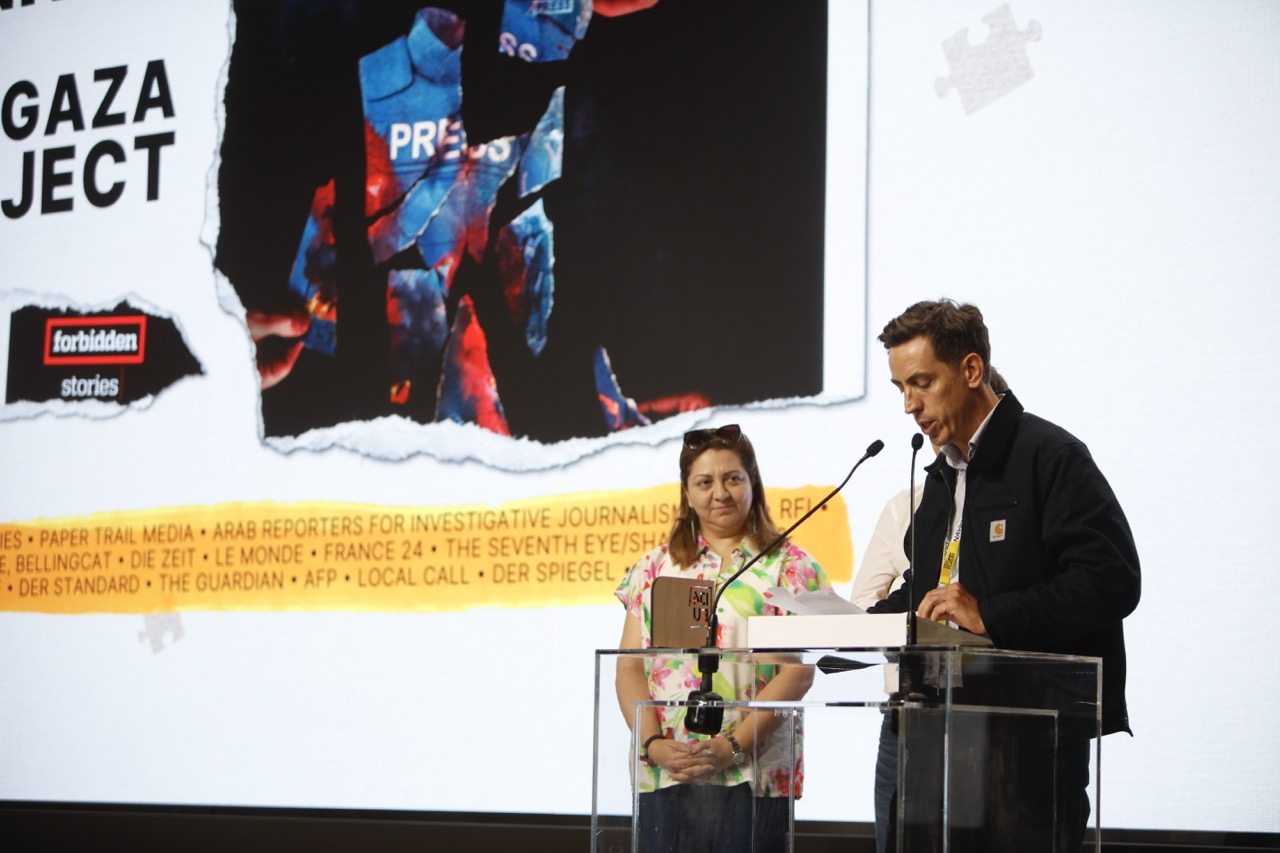
The 50-strong team behind the Gaza Project used witness testimony, expert analysis, satellite imagery and 3D modelling to document a chilling pattern of Israeli attacks on Palestinian members of the press — allegations the Israeli military denies.
Since Hamas-led attacks on Israel on October 7, 2023, Palestine has become the most dangerous place on earth for media workers, with about 200 journalists killed in Gaza and the West Bank.
“For its methodological rigour under extreme constraints; its innovative use of satellite analysis and photogrammetry; its collaboration across borders and newsrooms; and its commitment to accountability when accountability is hardest, the IJ4EU jury recognises The Gaza Project with an Impact Award,” Caruana Galizia said.
‘Changed the debate’
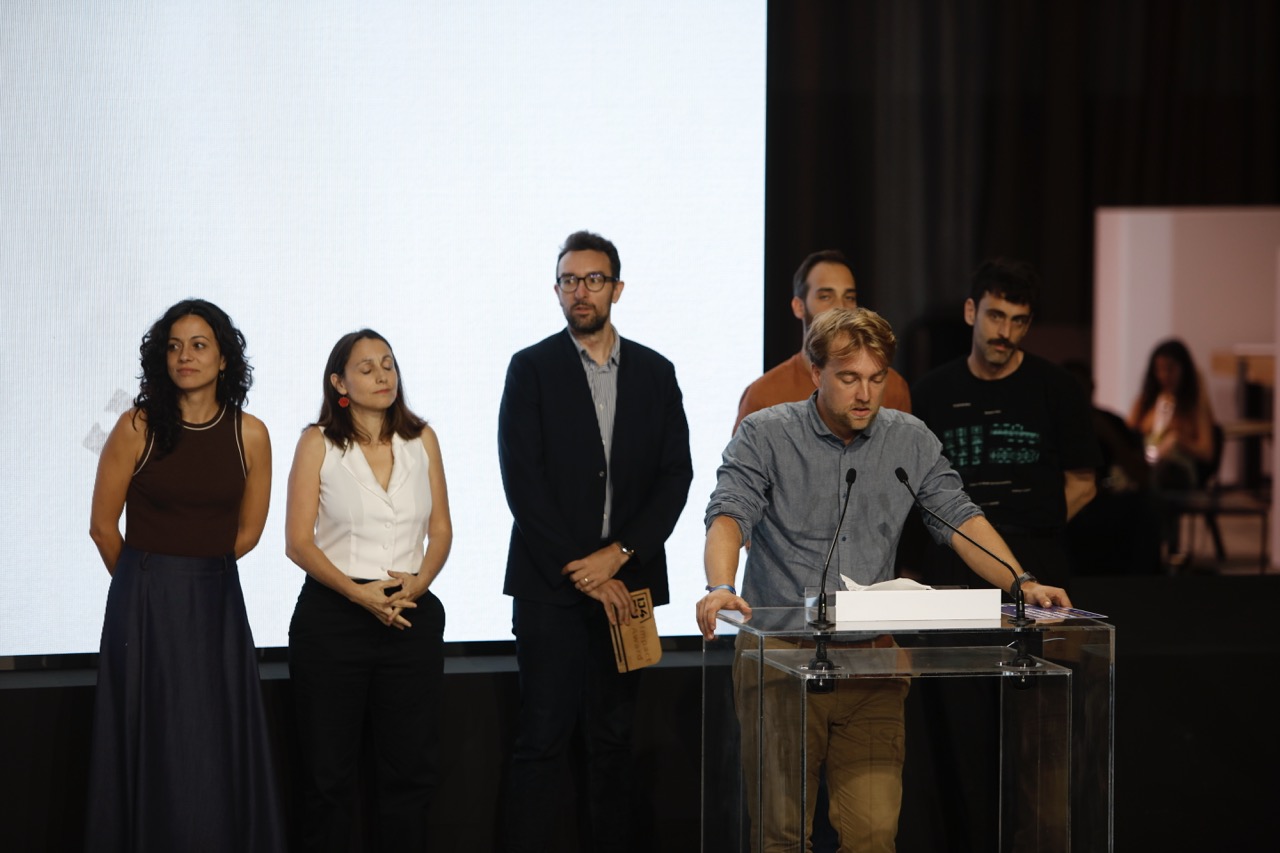
The team behind Desert Dumps drew praise for what jury members described as the most comprehensive account to date of how European migration policy fuels abuse beyond its borders.
Across North Africa, tens of thousands of migrants have been forcibly removed and abandoned in barren desert zones, left at risk of starvation, violence and death. These expulsions are carried out with European funds, masked by the sanitised language of “migration management” — and often, with Europe’s knowledge.JBVJYD
The investigation reveals that EU-sourced resources, including money, vehicles and surveillance technology, directly enable these “desert dumps”, which systematically target Black communities through racial profiling and forceful expulsion in Morocco, Mauritania and Tunisia, even after people’s legal status and livelihoods in these countries have long been established.
The jury recognised the innovative, cross-border collaboration for exposing double moral standards and contributing to one of the most urgent political debates for the EU.
“This investigation changed the debate,” jury member Königer said. “The horrible term ‘desert dump’ has entered the vocabulary of NGOs and policymakers. It reminds us Europeans that the values we invoke must also apply where people are desperately trying to reach their sphere of influence.”
Calls for an inquiry
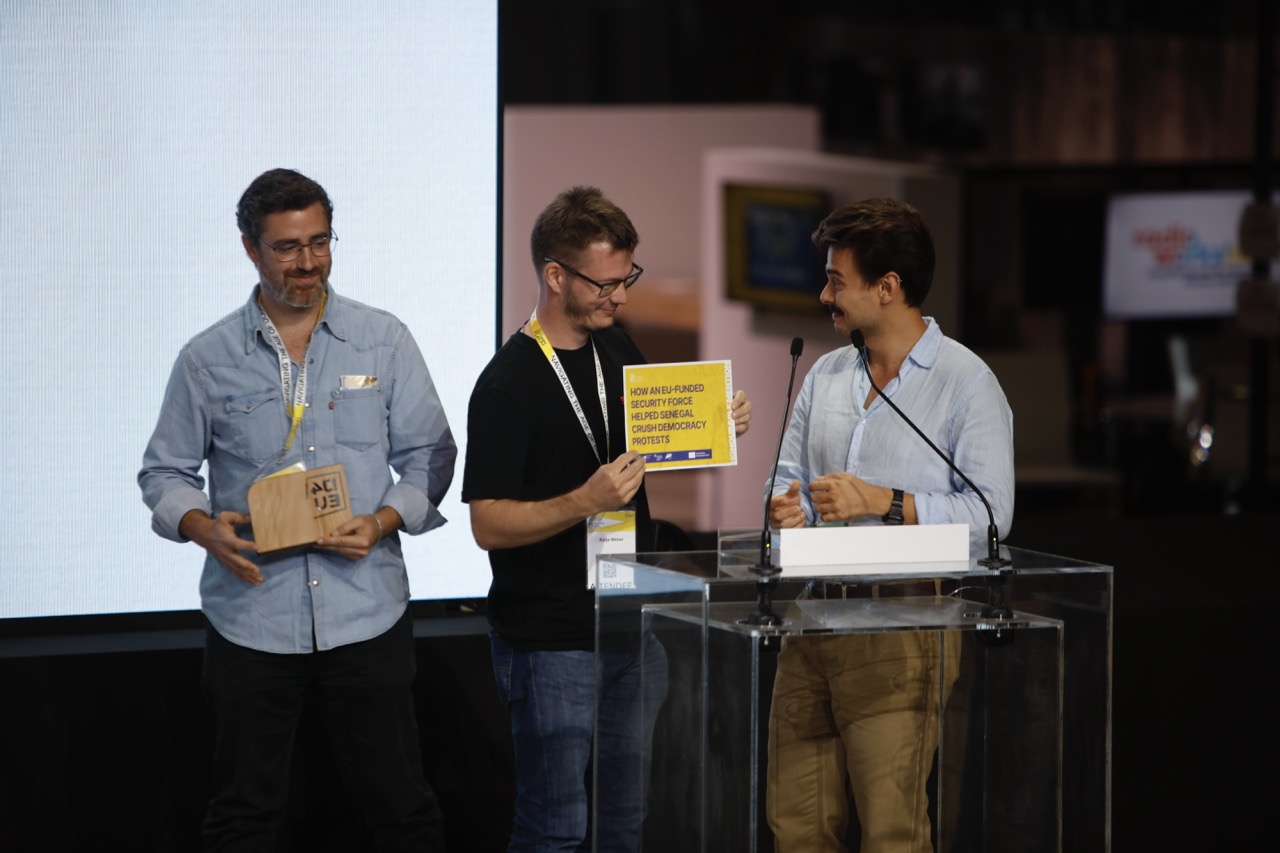
The jury commended Andrei Popoviciu and José Bautista, the two journalists behind How an EU-funded security force helped Senegal crush democracy protests, for their unflinching work exposing corruption and rights abuses in West Africa.
The investigation found that Senegal’s EU-funded GAR-SI security force was used to crush protests over opposition leader Ousmane Sonko, leaving dozens dead and many more injured or arrested.
The investigation prompted calls in the European Parliament for a formal inquiry.
“The articles demonstrate how an elite unit — financed, trained and equipped for fighting cross-border crime — was used to suppress dissent in Senegal,” jury member Weber said.
“It is also a great example of how EU agencies that are supposed to uphold European values fail to do exactly this and also waste millions of euros.”
